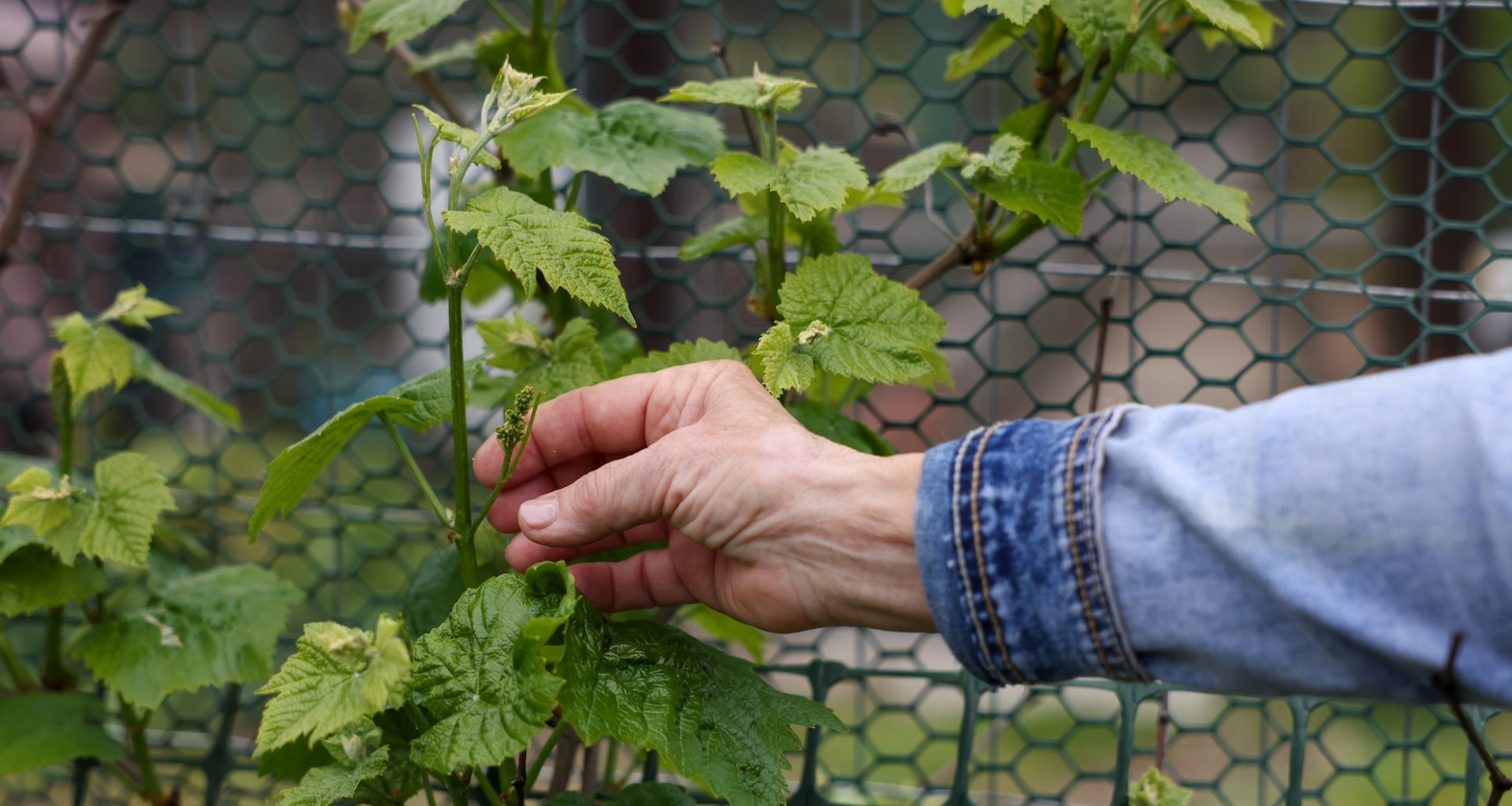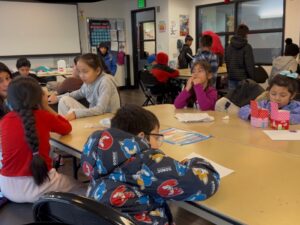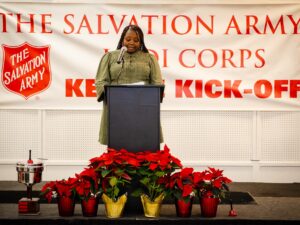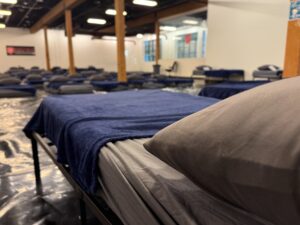For 10 years, The Salvation Army Canoga Park Adult Rehabilitation Center has leased a nearby garden plot and brought beneficiaries to cultivate, nurture and harvest crops as part of their rehabilitation journey.
The scent of growing herbs and damp soil fills the air at the Orcutt Ranch Horticulture Center in West Hills, California. There, beneficiaries of the Canoga Park Salvation Army Adult Rehabilitation Center (ARC) tend to their community garden plots, taking in the sunlight and welcoming the joys of gardening.
The Canoga Park ARC—one of The Salvation Army’s residential programs that provide spiritual, emotional and social assistance to individuals who are experiencing a variety of social, emotional and spiritual challenges, including issues relating to substance abuse—began leasing the pair of plots from Los Angeles County in 2014. For the past decade, the Saturday morning practice of tending the garden for an hour and a half has supported beneficiaries’ recoveries.
“Working with the soil brings a sense of peace,” said Emilia Neudorff, Salvation Army Advisory Board member and garden manager. “I’m a nature lover and I wanted men in recovery to experience the benefits of being outdoors.”
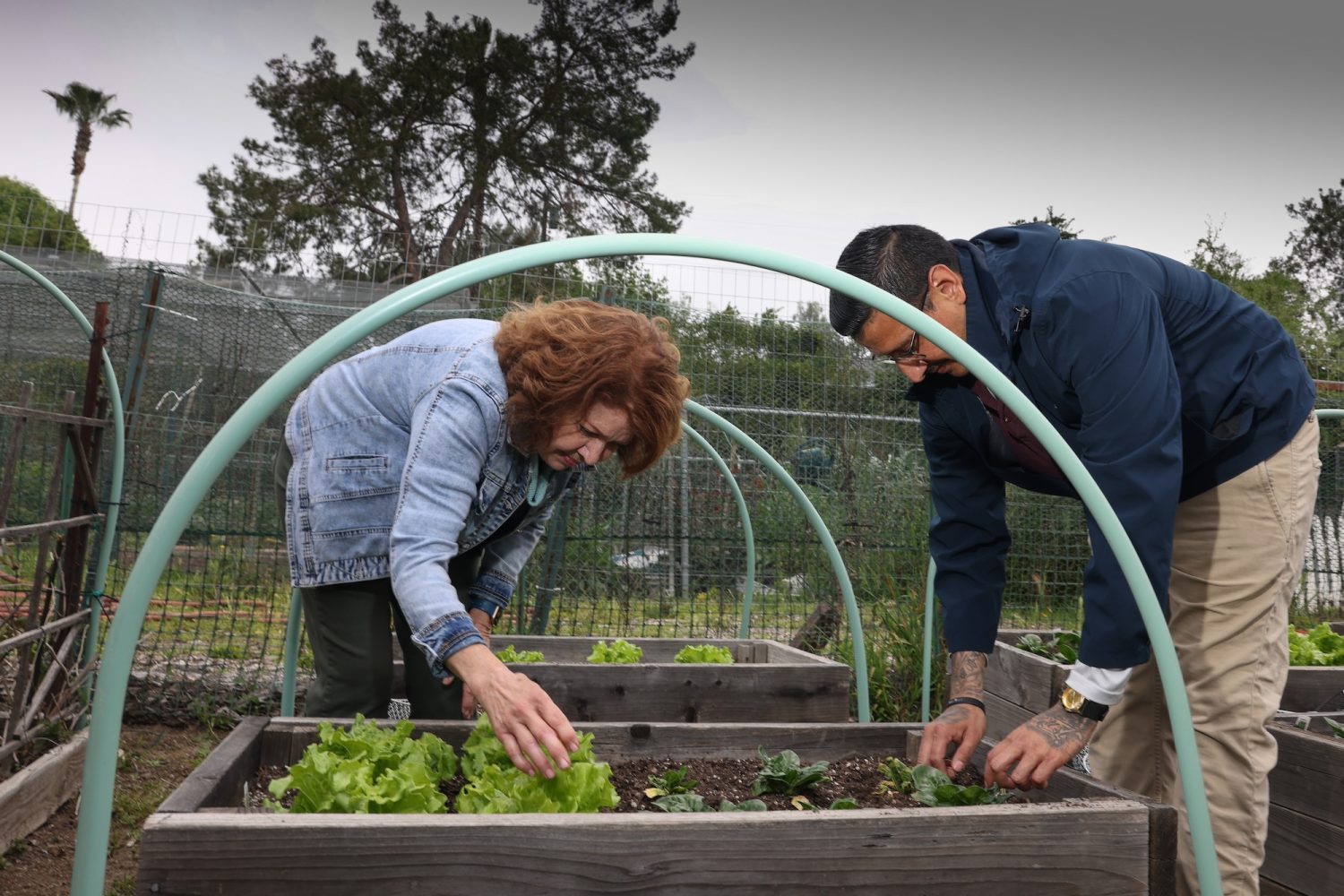
Neudorff said she has some understanding of the emotions men in recovery face as her sons have grappled with addiction. She helped jumpstart the program and continues to advocate for outdoor activities to fight feelings of frustration, fear or stress.
“It just gives you that calming feeling,” Neudorff said. “Even the soil is scientifically proven to feed into serotonin, so you feel happy.”
Weather permitting, a group of two to three men come to the garden weekly to plant seeds, pull weeds, water and eventually harvest crops. They are currently growing 48 tomato plants, grapes, celery, eggplant, blackberries and lettuce.
As they work outdoors, Neudorff imparts lessons of the soil, drawing from biblical parables to support men in their journey through recovery. She emphasizes the phrase “redeeming the dirt,” utilizing the garden to transform lives and foster a sense of giving back and doing good.
“Jesus used parables about the soil, and there are so many lessons that we can gain and apply to our lives,” she said. “For instance, if we don’t pull weeds out from the root, they will persist.”
She described this as delving into the core of one’s problems to resolve them for good.
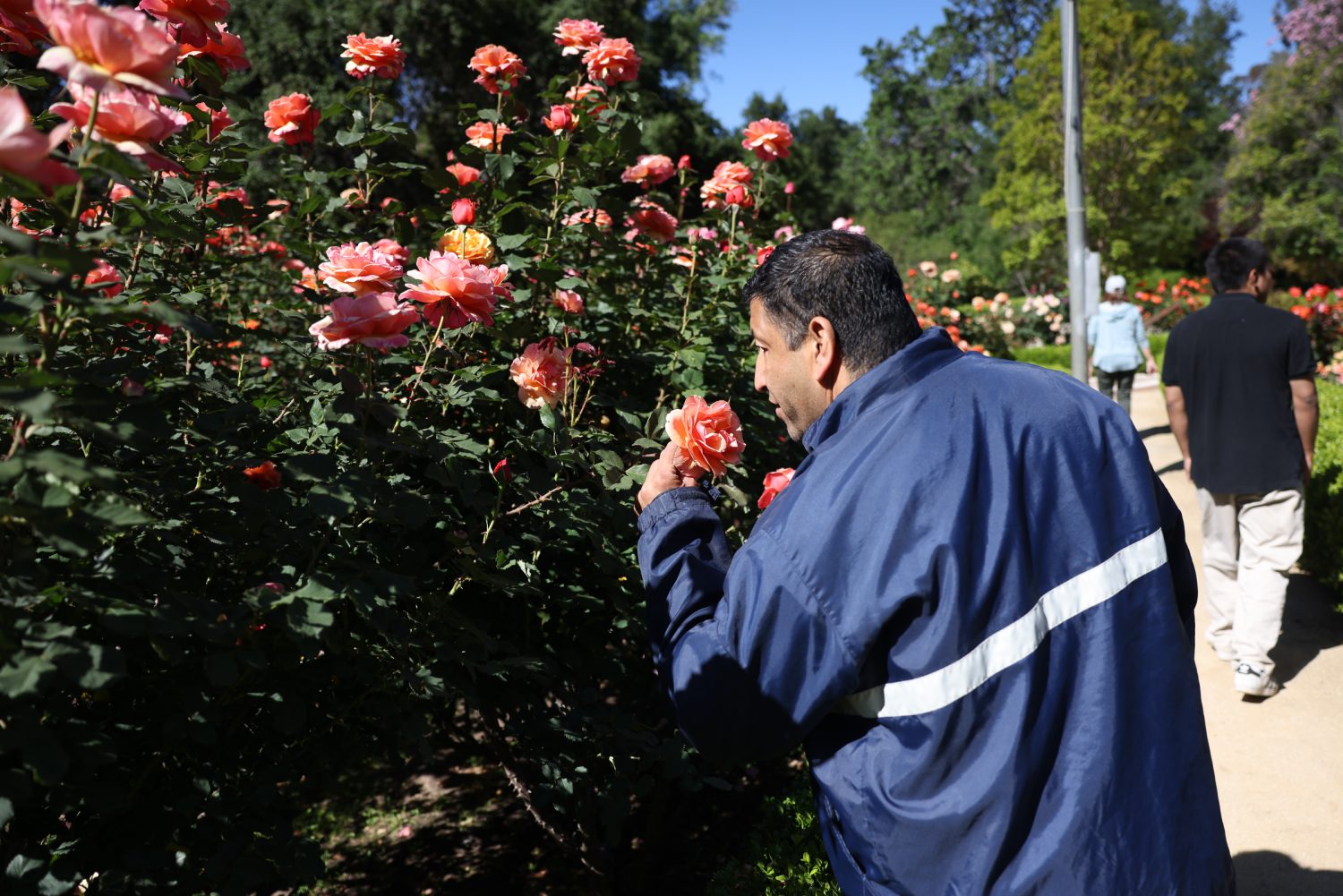
“Working with the ground can give us satisfaction, healing, joy and a sense of accomplishment, knowing that we’ve contributed to bringing a harvest into the kitchen of the ARC,” Neudorff said.
After completing the gardening tasks, beneficiaries take a short hike with Neudorff on a nature trail located just a few yards away from the garden.
Alejandro Rodriguez is set to complete the ARC program in June. He said he recognized some of the benefits of gardening after just one visit.
“I’ve never spent time gardening before,” Rodriguez said. “It was relaxing; I felt calm.”
Rodriguez credits part of this to Neudorff and her dedication to working alongside those in recovery.
“She’s just genuine with her intentions and wants the best for us,” Rodriguez said. “The hikes and just being outside kind of takes me back to when I was a kid again. I found myself walking away with a clear mind.”
Rodriguez, whose 6-year-old son loves the outdoors, feels he has discovered a new way to bond with him. After he completes the program, he intends to bring his son to the garden to spend time outside together.
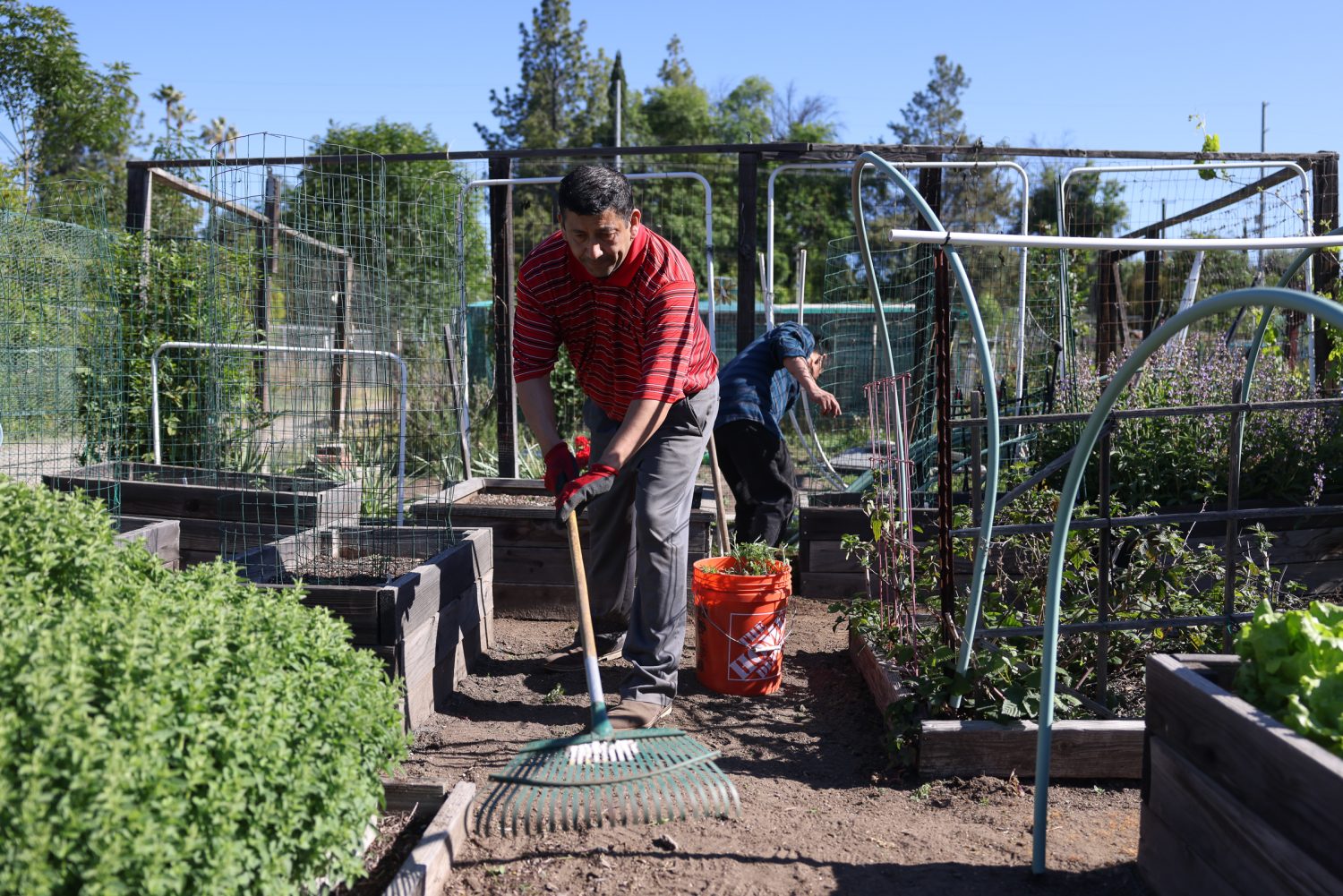
“Coming to the ARC was the best decision I’ve ever made,” Rodriguez said. “I’m on track to being a better father and individual.”
Neudorff said that providing an activity that many haven’t experienced since childhood can evoke a sense of nostalgia, transporting them back to a time before addiction.
“I love to see the changes in the men when they come to the garden for the first time,” she said. “Once they start working, good memories start popping up from their past.”
She recalled one participant who tasted sugarcane while gardening and was taken back to when they were a child and first tried it in their grandparents’ garden.
“That’s when the healing begins,” she said. “I see the men leave the garden full of joy and they want to come back.”
Canoga Park ARC Administrator for Business Major John Desplancke said the program exposes men to new ways of having fun.
“We observe their satisfaction when they return from the garden,” Desplancke said. “Later, they enjoy those same crops on their plate. The program demonstrates to the men that they can lead a fulfilling and meaningful life with new hobbies in recovery.”
Do Good:
- See how The Salvation Army supports rehabilitation.
- How do you want to experience your life? What do you want your life to reflect? Get the Joy-Filled Toolkit now and make a plan for joy with a printable 12-week joy planner and mini-workshop podcast to help you create a season of intention.








